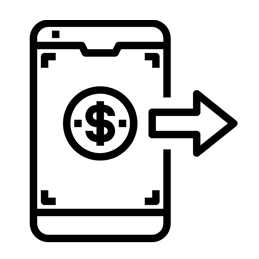Ghanaian Cedi: A Brief History of Ghana's National Currency
The Ghanaian Cedi (GHS) is the official currency of the Republic of Ghana. Its history is intertwined with Ghana’s economic development and the country’s journey towards financial stability. Here is a brief overview of the Ghanaian Cedi’s evolution over time:
-
Introduction of the Cedi:
- The First Cedi: The Ghanaian Cedi was first introduced on July 19, 1965, replacing the Ghanaian pound. The initial exchange rate was set at 1 Cedi to 1.2 pounds.
- Decimalization: With the introduction of the Cedi, Ghana also transitioned to a decimal system, replacing the British-style currency system.
-
Currency Reforms and Name Changes:
- The Second Cedi: Due to economic challenges and high inflation in the 1970s, Ghana underwent a currency reform in 1979, leading to the introduction of the “Second Cedi” at a rate of 1 Cedi to 10,000 old Cedis.
- The Third Cedi: Another currency reform occurred in 2007, resulting in the introduction of the “Third Cedi” with a conversion rate of 1 Cedi to 10,000 old Cedis.
-
Denominations and Coins:
- Over the years, Ghana’s currency has seen changes in its denominations and coinage.
- Denominations: The Ghanaian Cedi is issued in banknotes of various denominations, including 1 Cedi, 5 Cedis, 10 Cedis, 20 Cedis, and 50 Cedis, among others.
- Coins: Ghanaian Cedi coins include 1 Pesewa, 5 Pesewas, 10 Pesewas, 20 Pesewas, and 50 Pesewas, as well as 1 Cedi coins.
-
Currency Stability and Management:
- The Bank of Ghana: As Ghana’s central bank, the Bank of Ghana plays a critical role in managing the country’s currency and maintaining its stability.
- Monetary Policies: The Bank of Ghana implements monetary policies to regulate inflation, stabilize the currency, and foster economic growth.
-
Security Features:
- To combat counterfeiting, Ghanaian Cedi banknotes have undergone several updates, incorporating advanced security features such as watermarks, security threads, holographic foils, and raised printing.
-
Economic Impact and Global Trade:
- The value and stability of the Ghanaian Cedi have a significant impact on Ghana’s economy, including its ability to attract investments, manage inflation, and facilitate international trade.
Today, the Ghanaian Cedi continues to be the primary means of payment within the country, supporting Ghana’s economic activities and financial transactions. The currency’s evolution reflects Ghana’s efforts to address economic challenges and maintain stability in its financial system.
Related Pages:
Send Money
The future of financial transactions and many more all at your fingertips.
Data Protection
RemitM is registered with the Information Commissioner’s Office (ICO), the UK’s independent authority set up to uphold information rights in the public interest.
You can visit the ICO website to learn more about data protection or search the ICO register to view details of Remitm’s registration (Registration Number: ZA526026)
Client Funds
All clients’ funds are held in a dedicated client account separate from RemitM’s funds, in line with our regulatory framework and consistent with good practice.
We earn no interest from holding client funds, as your payments and transfers are not held by us and are remitted to recipients upon receipt.
Online Security
Your data is transmitted in a secure way and all password data is encrypted.



